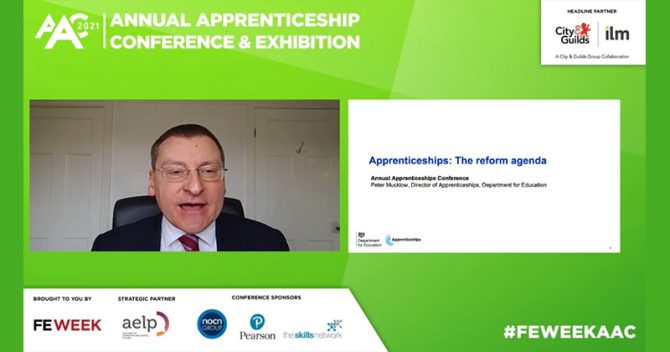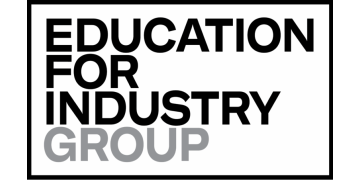Ofsted’s chief inspector has warned the quality of apprenticeship training is still “troubling”.
Following the resumption of new provider monitoring visits, Amanda Spielman today told FE Week’s Annual Apprenticeship Conference inspectors had made 100 such visits since mid-March.
It was “concerning,” she said, that a third of them resulted in at least one ‘insufficient progress’ judgement.
“The quality of apprenticeship training does need to improve,” Spielman told delegates, after she and Ofsted more widely have expressed repeated concerns about quality in the apprenticeship sector.
‘This can’t be blamed on Covid’
At AAC 2019, the chief inspector said quality of apprenticeships was “sticking” instead of moving forward.
Ofsted’s 2020 annual report said apprenticeships were the “weakest” area of provision in FE providers, with one in ten judged ‘inadequate’ last year.
Speaking this morning, Spielman said: “Let’s be frank, this can’t be blamed on Covid. This is the same pattern we were seeing before the pandemic.
“To have such a high proportion of insufficient progress judgments is troubling.”
Ofsted’s stated concerns contrast with the Department for Education, which has continually boasted of the quality improvement apprenticeships have experienced because of the government’s reforms to the sector since 2017.
Skills minister Gillian Keegan, writing for FE Week’s National Apprenticeship Week supplement in February, said: “Thanks to our reforms, apprenticeships are now longer and higher quality, and we have taken steps to ensure apprentices learn the skills employers need to thrive at any age.”
When asked by FE Week editor Nick Linford today, neither Spielman nor Joyce would be drawn on whether quality had improved since the apprenticeship reforms.
Joyce explained they were at an “early stage” of their evaluation of the programme, partly as there were still providers delivering apprenticeship frameworks while being inspected by Ofsted, as opposed to the reforms’ flagship apprenticeship standards.
Apprenticeship achievement rates ‘not yet high enough’
Speaking at AAC on Monday, Keegan said she had ordered an investigation into the “astonishingly” high apprenticeship drop-out rates.
That is after official government data published in March showed just 60.2 per cent of apprentices training on new-style standards stayed on their programme until the end in 2019/20. This figure was 48.3 per cent the year before.

The retention rate on the old-style frameworks has stuck at 69 per cent.
And addressing the conference today, the Education and Skills Funding Agency’s director of apprenticeships Peter Mucklow said achievement rates “are not yet high enough,” though they had increased by 12 percentage points between 2018/19 and 2019/20.
However, that still only brings it up to 58.7 per cent – much below the 61 or 62 per cent which Linford told him “used to be minimum standards threshold”.








So IfATE say that Standards are more rigourous than Frameworks and that it’s not helpful to compare.
Ofsted state that apprenticeship provision remains poor (suggesting they think it has been poor for some time), but haven’t really commented or recognised the move from Frameworks to Standards, plus they say they don’t rely on achievement rates to judge quality.
Ministers have been praising better quality due to reforms, but more recently have changed tack seeking a review.
DfE have pointed to a recent 12% increase in achievement rates and suggest there is more to be done, without specifying what that is.
Why not stop dancing round the issue and look at retention and the reasons behind dropping out. I haven’t seen a single analysis presented by any of the above (nor FE Week) by duration and little by subject sector or industrial sector. Unlike classroom provision there are employers and economics involved, which matters!
(the blunt instrument of Minimum Standard methodology is too rigid for this, needs more sophistication, but the issue needs understanding first)
I think if Ofsted is saying that apprenticeship provision is sticking, rather than moving forward, they should be part of the group of people asking why that is the case? Does that mean that inspection is not having sufficient impact? Is just telling providers that progress reviews, initial assessment, off-the-job training etc. are not good enough actually not solving anything? The skill lies in making these parts of the learner journey better, not just repeatedly saying how poor they are in too many providers. I think Covid-19 should have been an opportunity to re-evaluate how we genuinely improve things, rather than constantly ‘weighing the pig’.
Well, they could always make the entry & exit points more appropriate by introducing level 2 Standards. Perhaps they could reduce the dependency on Professional Acreditation bodies with historic low achievement or resources to enable timely assessment.
Perhaps they could evaluate the income choices graduates face on deciding to take a job or wait for the EPA.
Perhaps they could balance the risks of non achievement from the Providers to the apprentices and employers to enhance the benefits of Standards achievement for everyone.
Just a thought.